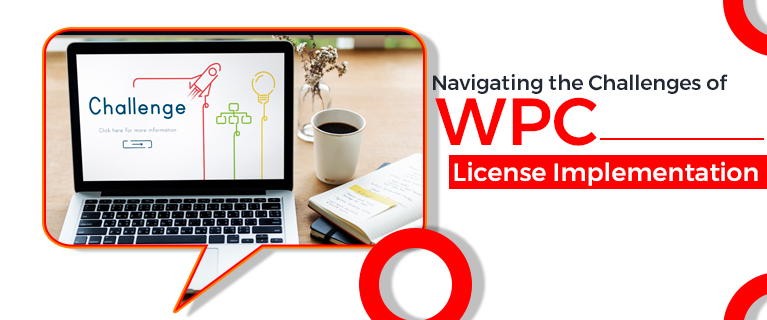Compliance And Safety Considerations For WPC Licence Holders
Acquiring a Wireless Planning and Coordination (WPC) licence is crucial for using wireless communication devices and equipment in India. Alongside the licensing process, WPC licence holders must prioritise compliance and safety considerations to ensure reliable and efficient communication. This blog provides a comprehensive overview of the key compliance and safety aspects that WPC licence holders should understand and implement. From equipment testing and certification to electromagnetic compatibility requirements and adherence to technical standards, we explore the essential considerations for maintaining compliance and safety in wireless communication operations.
1. Equipment Testing and Certification
One of the critical compliance requirements for WPC licence holders is ensuring that their wireless communication equipment meets the prescribed technical specifications and safety standards. This involves conducting rigorous testing and obtaining certification from authorised testing laboratories. WPC licence holders should prioritise equipment testing to verify its performance, reliability, and conformity to relevant standards. Compliance with testing and certification ensures that the equipment operates safely and effectively within the allocated frequency bands.
2. Electromagnetic Compatibility (EMC) Requirements
To prevent interference and maintain reliable wireless communication, WPC licence holders must adhere to electromagnetic compatibility (EMC) requirements. EMC ensures that different wireless devices can coexist without causing interference to each other or to other sensitive electronic systems. Licence holders need to ensure that their equipment is designed and operated in a manner that does not exceed specified emission limits and remains immune to external interference. Complying with EMC standards guarantees the smooth operation of wireless communication systems and minimises disruptions to other electronic devices in the vicinity.
3. Adherence to Technical Standards
WPC licence holders are required to comply with specific technical standards set by the Department of Telecommunications (DoT). These standards define the permissible parameters for frequency range, power output, modulation technique, and other technical aspects. Licence holders must ensure that their equipment meets these standards and operates within the designated limits. Adherence to technical standards enhances interoperability, reduces interference, and ensures efficient utilisation of wireless resources.
4. Regular Monitoring and Compliance Audits
Maintaining compliance is an ongoing process for WPC licence holders. Regular monitoring of the wireless communication operations, periodic checks of the equipment, and conducting compliance audits are essential. By monitoring their operations and conducting internal audits, licence holders can identify any deviations or non-compliance issues promptly. Addressing these concerns proactively helps maintain the integrity of the wireless communication system and ensures compliance with regulatory requirements.
5. Importance of Ongoing Compliance
WPC licence holders must understand that compliance is not a one-time obligation but an ongoing commitment. It is essential to stay updated with any changes in regulations, technical standards, or licensing conditions. Changes in the operating environment, such as the introduction of new wireless technologies or spectrum allocations, may necessitate modifications in equipment or operational practices. Adhering to ongoing compliance ensures the reliability, safety, and sustainability of wireless communication systems.
Read Also This - A Comprehensive guide on Acquiring a WPC License OnlineConclusion
Compliance and safety considerations are paramount for WPC licence holders in maintaining reliable and efficient wireless communication operations. Adhering to equipment testing and certification, electromagnetic compatibility requirements, technical standards, and conducting regular compliance audits are essential for ensuring the integrity and effectiveness of the wireless communication system. By prioritising compliance and safety, licence holders can minimise interference, promote interoperability, and contribute to a well-functioning wireless communication ecosystem. Regular monitoring and a commitment to ongoing compliance help licence holders stay abreast of regulatory changes and ensure compliance with evolving standards, ensuring the continuous delivery of reliable wireless communication services.



Comments
Post a Comment